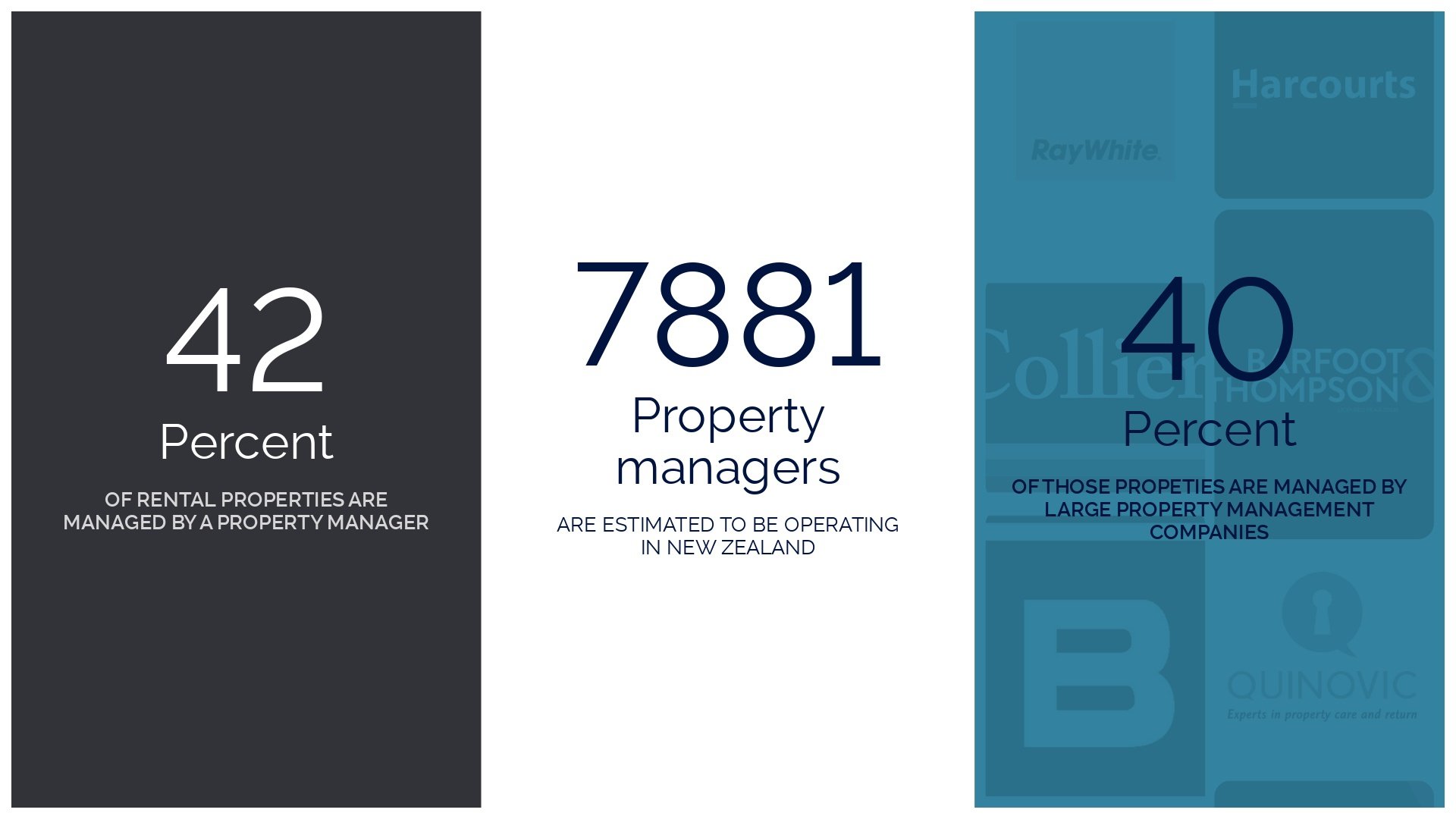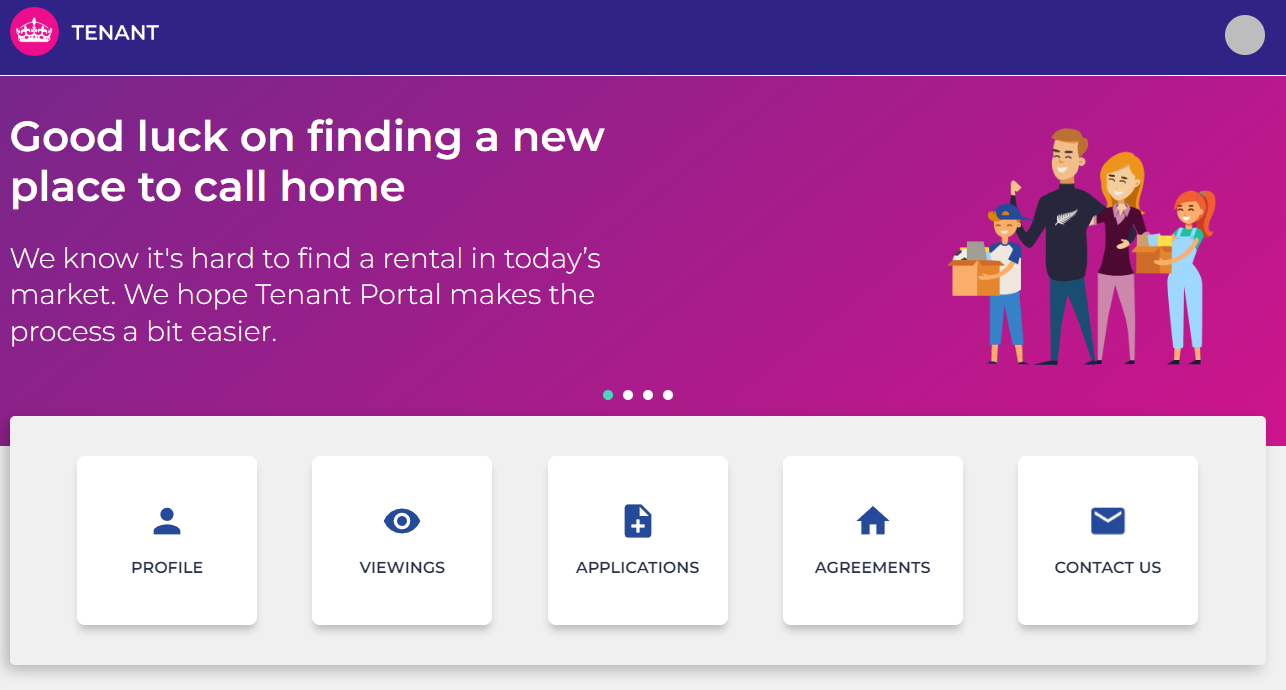A Comprehensive Guide to Applying for Rental Properties via property management firms in Christchurch (New Zealand)
Number of NZ rental properties managed by Property mangers
I’m writing this guide from an agent (property managers) perspective on how you can put yourself in the best position to be accepted for your next rental property.
I was motivated to write a guide because I’ve grown frustrated at seeing good or even ideal tenants being overlooked when applying for new properties. I’ve also encountered many prospective tenants at viewings, who have good rental references, yet keep getting declined from properties and have asked me for advice on what they can do. This guide is geared towards all the good people who are struggling to find a new property and are open to trying a new approach. The intention is not for it to be used in a deceitful or dishonest way.
Please use this is as a ‘general guide’, a lot of you will be doing most of the steps listed anyway and not everything will be applicable to your circumstances. Nothing in this guide is ever expected or required, so look at it like a tool to help increase your chances of securing your preferred property.
Although I run property management business (Property Partner) and have processed 1000s of applications, I’m no authority on the matter- Other firms and property managers will have differing opinions to what I’ve suggested here.
Part 1: Proactive Measures - Things to Do
1. Following Instructions on Listing Descriptions:
Read the listing description: Before making an enquiry, make sure you have read all the details on the listing, so you avoid emailing through questions about the property that have already been answered.
Understanding the Process: Realise that some properties may receive 50-100+ inquiries within the first few days. A property manager could also have multiple properties listed and are swamped with inquiries, so it's crucial to follow the instructions on the listing. If it says to make an enquiry on the listing/ or to follow this link to book a viewing, then do your best to adhere to that. Following simple instructions could be perceived as a small qualifier to show you can also follow instructions during a tenancy.
Strategic Follow-Up: Allow 2-3 days for a response. If you don't hear back, then a polite follow-up call is appropriate. This can demonstrate your genuine interest without appearing impatient
2. Making a meaningful Enquiry on a property:
Importance of Language: Using proper grammar, keep it short, direct, and professional. If you have time, then try tailoring your message to the specific property- This conveys genuine interest and that you’re not just mass-enquiring for everything. The property manager should feel fortunate that a good tenant like you is interested in their property.
3. Flexibility on Viewing Times:
Accommodating the property manager/ agent: Do your utmost to align with their suggested viewing times. If necessary, take time off work- Let your boss/ manager know in advance that you’re going to be applying for properties and that lots of the viewing times are during working hours. Hopefully they are understanding enough and will allow it.
Keep in mind that a lot of properties you view will be tenanted, so a good property manager will arrange a time that suits the current tenants and not just a time that suits you. Making yourself available for the first viewing can increase the chances of securing your preferred property, especially if the property is in high demand. Missing the first available viewing could cost you the opportunity and the property could be rented to someone else.
4. Anticipating Reference Questions:
Preparation: Consider typical questions that a property manager/ agent might ask your previous rental references. Bring up related topics during the viewing, such as positive feedback during inspections at a property you’ve rented, good experiences with other landlords, or full bond refund information (if your full bond was always refunded, you could mention it), if you have never had a breach notice during your last tenancy, you could mention that too.
This proactive approach demonstrates your awareness and should resonate with a property manager, since you're using terminology, they're most familiar and answering questions they’re most interested in.
Typical reference questions a property manager could ask:
Rent amount per week.
tenancy duration
Was rent always paid on time?
What were some positive aspects of the tenancy?
How the tenant overall (scale of 1-5)
Were there any areas of concern?
Were there any pets?
Did the tenant keep the property in reasonable condition through the tenancy?
Where there any breach notices served following routine inspections?
Did the tenant respect the neighbours (free of complaints to the owner/agent)
Was the tenant easy to deal with?
Was the full bond refunded/ do you anticipate the full bond to be refunded
Would you rent to them again?
5. Providing a Cover Letter and Rental References:
Standing Out: Though it might seem over-the-top and to be honest it is! However, a cover letter will set you apart from the crowd (I mentioned I’ve processed 1000s of applications, well, only a handful of those included cover letters)
You could Include details like rental history, previous landlord contact information, job details (only if you feel comfortable sharing), or even hobbies, interests, sports, clubs, or social groups your involved with.
The key thing is to mention specifics that target questions an agent could ask when doing reference checks like mentioned above in Anticipating Reference Questions.
This sounds too hard!
Well you’re in luck, I’ve put together a sample template for you. This is built in Canva (free to use) and you can easily customise for yourself:
6. Aligning Move-In Dates:
Alignment Strategy: Determine the agent's preferred move-in date and accommodate it, even if it doesn't align perfectly with your schedule. The date the property is available should be stipulated on the rental listing, however, correctly reconfirming it during the viewing can reflect your attentiveness and eagerness to align with their plans.
If you’ve asked this question/ reconfirmed the date during the viewing and you’re willing and able to move in on the preferred date, then you could mention “I/ we can make that date work”, or “that date would work well for me/ us”. This should help prime them into moving your application towards the top of the list.
7. Timely Application Submission:
Immediate Action: Apply immediately after viewing unless specifically directed otherwise in the listing. Pre-applying may lead to your application being overlooked, as property managers/ agents may wait to process applications until after viewings- The online application process that most firms use (for example TPS) makes it easy to setup a tenant profile and then bulk apply for properties. Many tenants will do this without carefully reviewing any particular property (it’s like a fishing approach). Property managers see this all the time and are mindful about processing applications from someone who hasn’t viewed/ hasn’t explained why they can’t attend the viewing. Or in some cases now, hasn’t even made an enquiry on the listing!
If you’ve been applying for lots of properties, then you’ve probably seen this page
8. Assertiveness and Follow-Up:
Personal Connection: If possible, connect with the person who will be processing the applications. The person who manages all the listing enquiries might not be the person who vets applications (much less likely if it’s a larger firm). Ask the property manager/ agent at the viewing if they’re the one who will be processing applications. If they are, then ask for their business card or email address. Then after applying, follow up with an email, confirming you’ve applied and reattaching any cover letter/ written references in digital format. This can further emphasise your interest and make your application more accessible (few even bother to immediately follow up after sending in an application), so even just doing that should help you stand.
9. Be responsive:
Once you submit your application, stay on top of communications. If an agent contacts you with additional questions or requests for documents, respond as quickly as possible. Delaying your response can convey a lack of interest and might result in the property being leased to someone else.
Part 2: Cautious Navigation - Things Not to Do
1. Careless enquiries:
If you’re going to put the effort into making an enquiry, make it a meaningful Enquiry on a property. Don’t just send something like “when viewing”, “need property asap”, “please call me” etc, these kinds of enquiries are akin to the laziness the likes of Facebook marketplace has introduced, where you can click a button and send a prompt “Hi, is this available?” without having to write anything. You might have noticed that sellers have started to avoid/ or are slow to respond to these types of messages, because, after replying they often don’t get a response back.
2. Avoiding Overzealous Follow-Up:
Patience: Resist hounding the agent with calls, texts, or emails within a day of inquiry. Although not always a bad approach, understand that they may have multiple listings and be dealing with 100s of other inquiries, on top of their day-to-day duties.
3. Avoiding Desperation:
Perception: Don’t mention desperation, frustration, or frequent rejections when applying for properties. It most cases this will hinder you rather than help you, because, it could be perceived as a red flag- A property managers may wonder why an ideal tenant hasn't been accepted elsewhere.
4. Avoiding Oversharing:
Professional Boundaries: Keep personal circumstances or stories to yourself. Overwhelming the property manager with unnecessary information may raise concerns or doubts about your suitability as a tenant.
5. Avoiding Excessive Self-Promotion:
Balance: Refrain from talking yourself up excessively. Stick to verifiable claims and specific questions that align with common reference checks.
6. Timing of Current Circumstances:
You’re first interaction with the agent/ property manager shouldn’t be letting them know you want to move in ASAP. Use a more strategic disclosure (follow what is outlined in Things to do| 5. Aligning Move-In Dates). Thoughtful timing of these discussions can mitigate potential misperceptions or concerns about why you’re moving out of your current property.
7. No Bribes or Higher Rent Offers:
Ethical Considerations: Refrain from offering bribes or higher rent, as this may appear desperate or pushy. It may also be perceived as unfair to other applicants.
Additional considerations:
Although not so common in New Zealand (yet) it’s standard practice in Australia for property managers to request a tenant’s rental ledger (payment history) to prove the timeliness of previous rent payments. When I have tenants move to Australia and use me as their reference , it’s always a request and often all done through platforms like www.snug.com
So, if you have made timely rent payments at your current/ previous properties, you could ask the landlord to provide a copy of your rental ledger. You could then include a copy of your ledger alongside your cover letter when applying for properties.
A rental ledger might be a struggle for some private landlord to come up with, however, a property manager should be able to generate it in a few clicks inside their property management system. All landlords are obligated to provide you with a ledger/ payment summary on request.
What matters the most when applying for a property?
Simple answer: current/ previous rental references! Character reference might help you in some cases, however, most property managers will try avoid calling these. An agent doesn’t really want ( or need) to know what your boss thinks of you, or what your friends or family think of you (surely only good things, right!) they what to know how you looked after your current or previous property and if rent was paid on time for the duration of your tenancy.
I’ve owned my own property for the past “x” years and don’t have rental references:
It can be frustrating when you’re in this position, especially when agents want rental refences. Almost seem unfair. However, having owned your own your home could be a reference in itself. If the property has recently sold, then provide the listing photos that showcase the condition you maintained it in, list your real estate agent as a reference. Or produce any photos you have of the property that can help demonstrate how you maintained it.
I’ve followed all the steps in this guide but still haven’t been approved.
That is frustrating and I’m sorry to hear. There’s not a lot more to say, aside from the cliché advice of keep persisting and don’t give up. If it’s any consolation, keep in mind that a lot of times an agent could end up with dozens of applications, with lots of good applicants to choose from, so it’s honestly a hard decision to make (and we might not have necessarily make the best one). There is a luck element and one of the purposes of this guide is to help reduce the luck element by making a bunch of small changes to increase the chance of your application getting approved.
Will my bad credit rating hurt my application?
Not necessarily. Although it depends on how bad we’re talking. In most cases good reference with a proven track record of rent payments will overpower a bad credit score. If you do have bad credit score, but a good rental payment history, then following the Additional considerations and providing a ledger should be more of a consideration.
If you’re wondering about your credit score, then check out Creditsimple, they offer a way to check your credit score for free and offer good advice on ways to improve it! They’ve also offered some advice here on “How to get the renal you want even if you have bad credit”
What will hurt your application the most is debts incurred from orders by the tenancy tribunal, where you have rent arrears owing or have damaged a property.
Is it easier to get approved by a private landlord vs a property management firm?
In most cases, yes. An owner will engage us to ensure their property finds the best tenants and entrusts us to provide the best service possible- So we tend to follow stricter protocols and carry out more compressive checks before approving an application. Even if we resonate with a tenant on a personal level, we must put that to the side and take a more professional approach.
Although property management is a growing trend, over 50% of rental properties in New Zealand are still self-managed by private landlords. If you continue to struggle finding a property, then a suggestion could be to use this guide but focus only on properties listed by private landlords. This could also be a good approach if you have limited rental references/ or have never rented before.
Conclusion
If you’re struggling to find a new property to rent, then you should consider a more nuanced approach that differentiates you from other applicants. This guide offers detailed strategies for aligning with an agent/ property managers preference, demonstrating genuine interest, and avoiding common pitfalls. Even if you’re doing most things right already, consider the idea that a few small changes(improvements) to the way your approach looking for a new home could lead to significantly different( better) outcomes.
“Too often we convince ourselves that massive results require massive action”
When it’s often the small changes that compound to make the most difference.
By following these steps, you can present yourself as a thoughtful, well-prepared applicant, increasing your chances of getting your application approved. Understanding the process from both the tenant's and agent's perspective should allow for a more strategic and successful approach.
I really hope there’s at least something you’ve found that’s useful in this guide and that helps you secure your ideal home :)
If you have any specific questions about this guide, then feel free to email me and i’ll try my best to get back to you in a timely manner: mckenzie@propetypartner.co.nz



